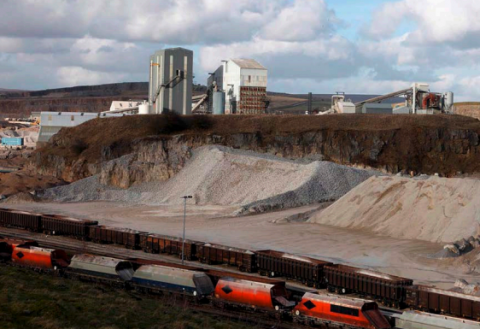
UK freight future aired in Parliament
The importance of rail freight to the UK construction industry has been highlighted at the very highest level in Government. Some 80 delegates came together to voice their concerns to the All Party Parliamentary Rail Group, chaired by Rail Minister Paul Maynard.
Construction firms already rely heavily on rail freight, with 40 per cent of aggregates used in London delivered by rail – enough to build 30 houses. Both the Mineral Products Association (MPA) and the Rail Freight Group (RFG) – the leading representative body for rail freight in the UK – are committed to increasing the use of rail freight, and the reception provided a welcome opportunity for discussions on how this can be achieved.
As well as playing a key role in the supply of construction materials to allow housing and infrastructure investments to take place, making full use of rail freight will make an important contribution to the issues of air quality and traffic congestion, which are rising up the political agenda. But, delegates were told, sustaining and increasing rail freight’s benefits will mean a significant number of challenges overcoming.
Lord Berkeley, Chair of the RFG, said: “Meeting the Government’s ambitious targets for house building and infrastructure relies on efficient and environmentally friendly rail logistics. This event shows how, by working together, we can deliver growth in rail freight for the construction industry over the coming years.”
Jerry McLaughlin, the MPA’s Executive Director of Economics and Public Affairs, added: “While the mineral products industry, Network Rail and rail freight businesses are ready to build on this success, we have significant concerns about our future ability to maximize the potential of rail freight because of threats to rail depots.’
She also warned that planning authorities, in particular, needed to appreciate that unless rail depots are properly safeguarded in the planning system, it will be increasingly difficult to meet mineral products demands arising from more housing and infrastructure development, notably in London.
Chris Swan, Senior Manager for Rail and Shipping at Tarmac, added: “Using rail freight to carry construction materials is under threat as railheads and depots close to major construction sites are being sold off,” he explained. And there is the further dilemma that the general public consensus seems to be that freight trains should run at night, but the railheads should operate only during the day – which means we end up going by road.”





